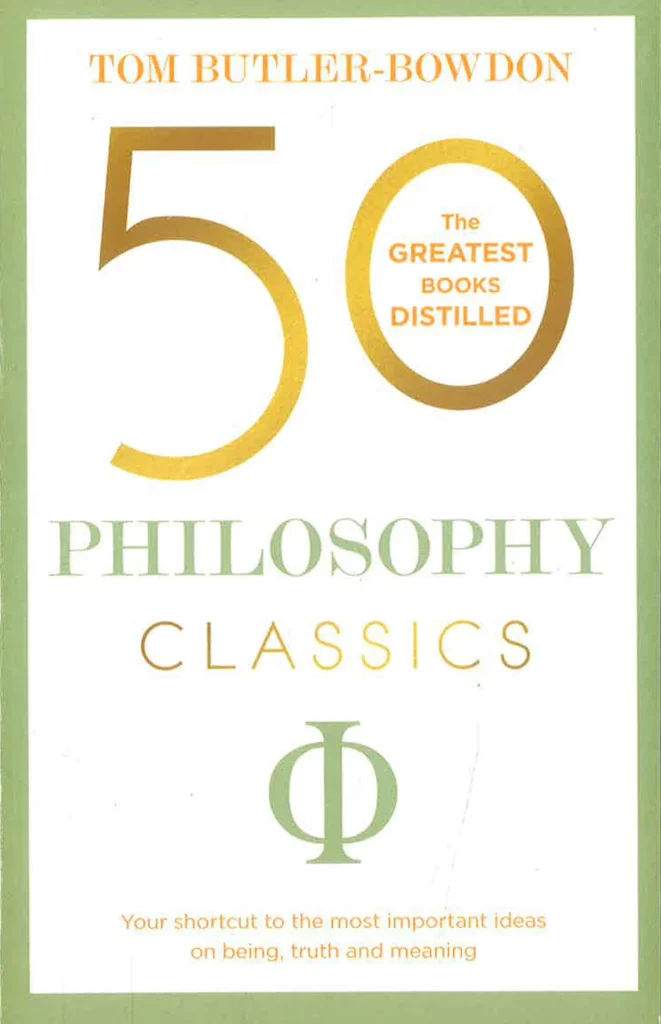Book Review 2024.13: 50 Philosophical Classics, Tom Butler-Bowdon, 317 pages, Paperback, 2022 -November 2, 2024

A book to be savored, to be read at leisure and when required reread more than once, as it offers new insights to reevaluate our views on issues that appeared crystal clear like democracy, meritocracy and scientific method, in addition to revealing new lights on feminism and the impact of social media. I read this book on influential western philosophers in over three months, in the mornings when I was in Bangalore and not travelling, to ensure that my mind was fresh and was not otherwise engaged. As I complete the book yesterday, I feel a keen sense of curiosity to read more on philosophy, especially the Islamic philosophical thought on which I have not made any attempt to explore till date.
Organized as short essays highlighting the core ideas of the philosophers in four to five pages with their short biographies, it is an ideal appetizer that helps you decide if you want to explore further of that line of thought. Covered in about five to six pages, it is an ideal read for a single sitting. Further the presence of internet access enables us to explore the ideas deeper to some of the questions that come in our mind after seeing the world through the new lens provided by the philosophers. I was able to read a maximum of two philosophers in a day, and on many days, I stopped at a single essay, especially if it was something new.
I think some of the questions that arise after reading this book will linger on for a very long time like, is the idea of democracy compatible with meritocracy in society?, With advent of social media and 24by7 TV news, can rational arguments prevail over short catchy sound bites as the basis for important political decisions?, and will the limitations of scientific knowledge negate the larger pool of intuitive knowledge that science is yet to validate?, these are only a few of the larger questions that needs answers.
While I am a strong believer in gender equality, I could appreciate the role of violence and role models in establishing and sustaining patriarchy only when reading the views of some of the feminist philosophers. Just as violence established patriarchy, I fear that economic inequality could lead to biological differentiation in human beings in our society due to malnutrition rampant among poorer children at one end and the extensive use of technology to nourish the richer children at the other end.
Recommend this book to all those interested in philosophy, especially those with time to invest in reading this book.
Happy Reading and your comments are welcome.

Social Profiles